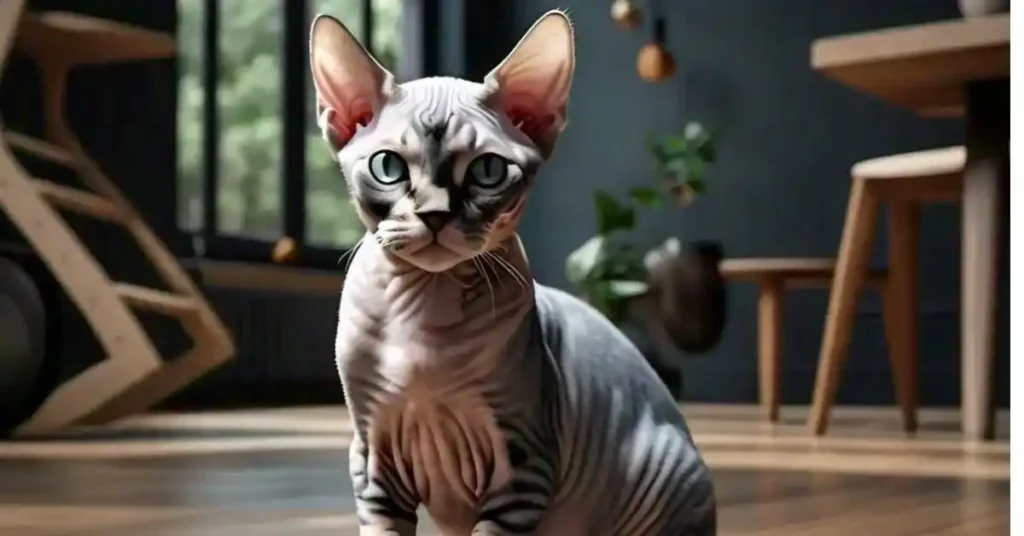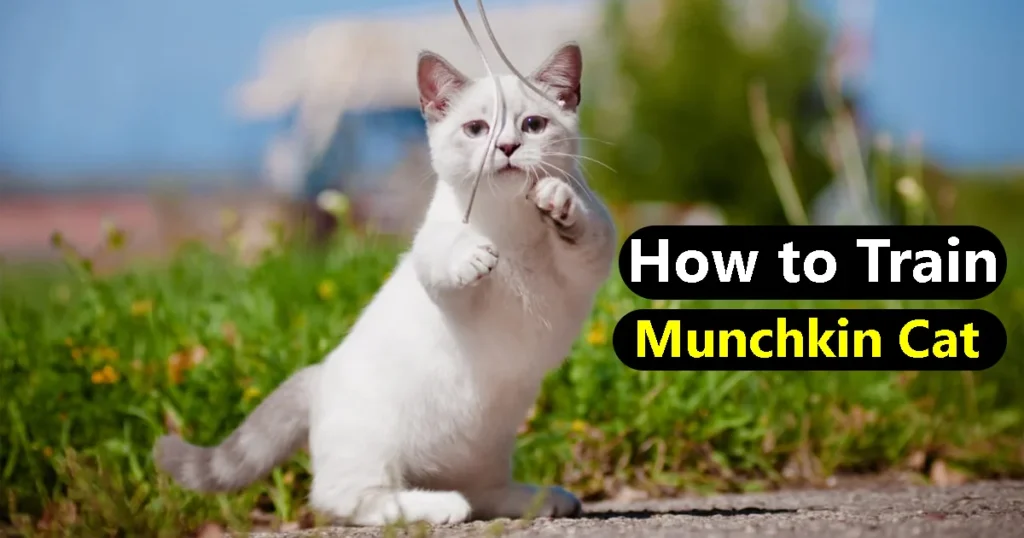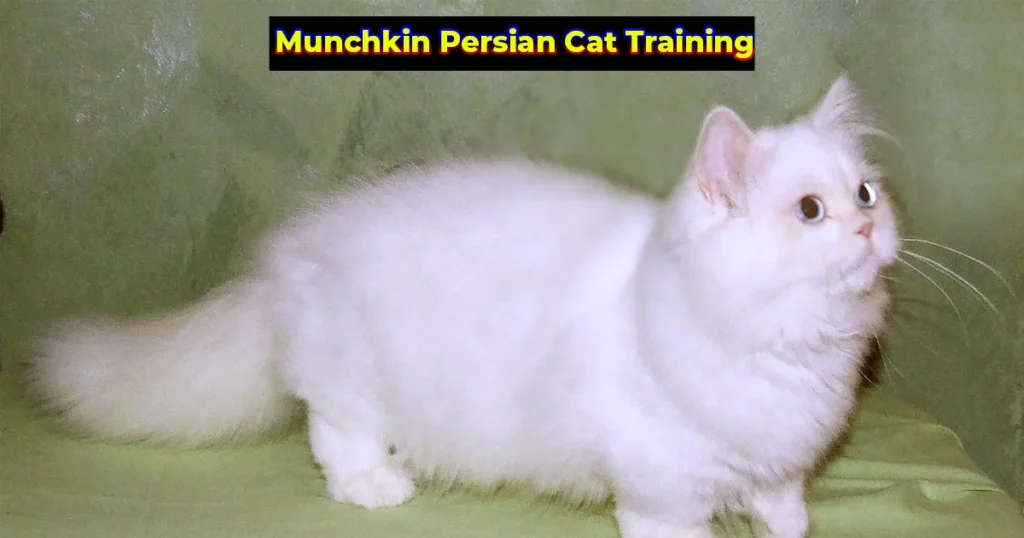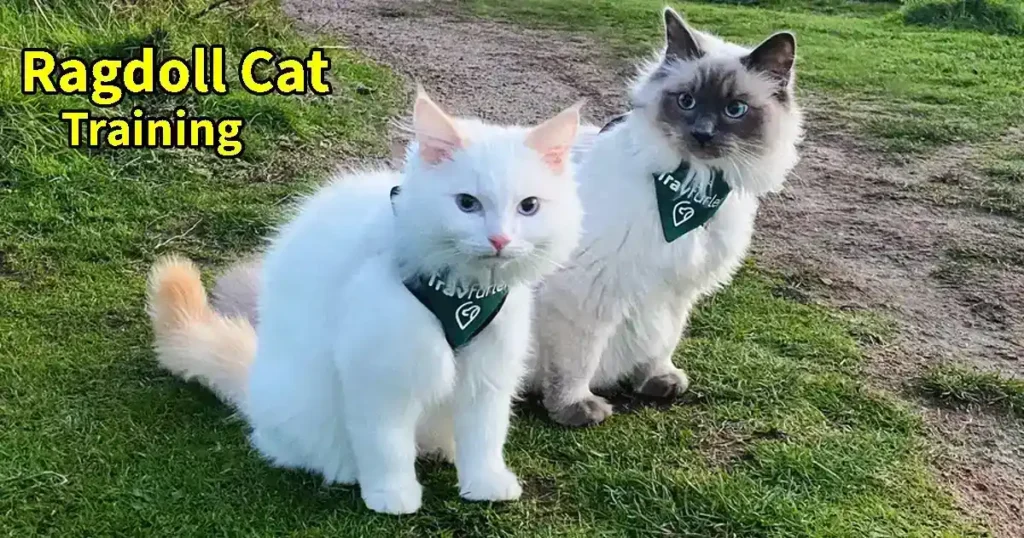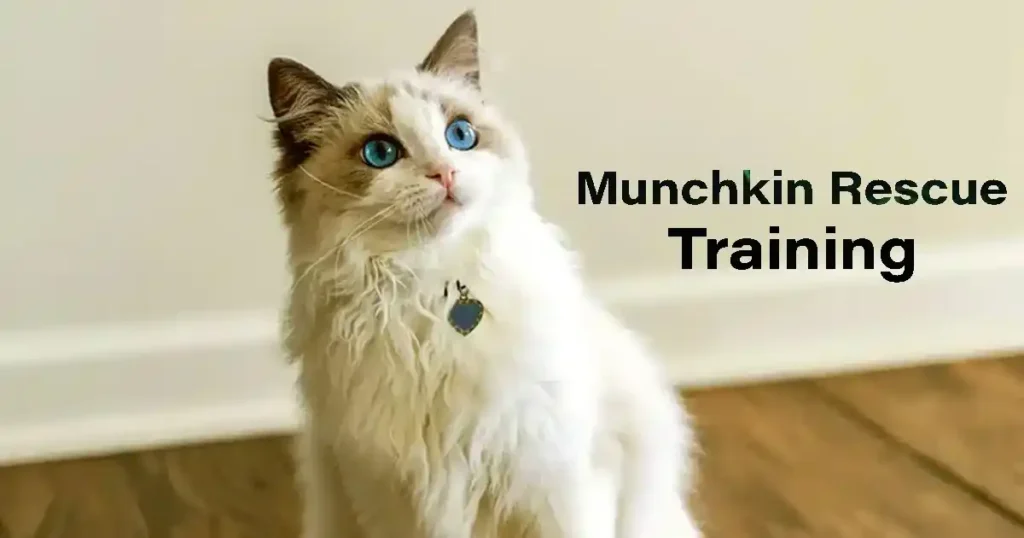Maine Coons are known for their affectionate and playful demeanor, making them highly trainable. They exhibit a dog-like loyalty and enjoy following their owners around, which enhances their receptiveness to training. However they also possess an independent streak, so patience and consistency are crucial in the training process.
Training a Maine Coon can be effective when you understand their personality and utilize positive reinforcement techniques such as clicker training. It’s beneficial to start with basic commands and incorporate play into their training, using voice and body signals to encourage good behavior. Some initial tricks to teach include handshakes and high fives.
Maine Coons are smart and can be trained well. With enough practice, they can even walk on a leash. Socialize them early and keep routines consistent. Check out guides for more tips on training and raising Maine Coons.
Training Your Maine Coon: A Guide for Beginners
Training your Maine Coon can be a rewarding experience, as these intelligent and sociable cats are eager to learn and bond with their owners. Begin with basic commands like “sit” or “come,” using positive reinforcement such as treats, praise, or toys to motivate them. Keep sessions short and engaging, as Maine Coons respond best to consistent yet fun training.
Litter training is usually straightforward, but adding scratching posts and toys will help meet their natural instincts. Leash training can also be introduced gradually, as their curious and confident nature makes them excellent candidates for outdoor adventures. With patience and love, your Maine Coon will thrive as a well-trained and happy companion.
- Their curiosity makes them good candidates for interactive toys and puzzle games, which provide both mental stimulation and fun. Consistency is key but be patient as they may take time to grasp new skills.
- Training a Maine Coon is not only about teaching them commands but also fostering a strong relationship built on trust and affection.
Basic Training for Maine Coons
Training Maine Coons involves patience and consistency. Start with simple commands and use positive reinforcement to encourage desired behaviors. Begin with short fun sessions to keep your cat engaged and motivated. Maine Coons are generally responsive to training due to their inquisitive nature.
Training your Maine Coon to play fetch can be a rewarding experience. Follow these steps:
- Choose the Right Toy: Use a lightweight, engaging toy that your cat enjoys.
- Encourage Play: Throw the toy a short distance and use a treat to encourage your cat to bring it back.
- Reinforce Success: Reward your cat with a treat and praise when they retrieve the toy.
With patience, your Maine Coon can learn to fetch just like a dog!
Fun Tricks for Maine Coons
Maine Coons can learn a variety of tricks beyond fetch. Some popular ones include:
- High Five: Teach your cat to give a high five by rewarding them for pawing at your hand.
- Sit: Encourage your Maine Coon to sit on command by guiding them with a treat.
- Jump Through a Hoop: Use a hoop to train your cat to jump through by gradually increasing the height.
Understanding Maine Coon Behavior
While Maine Coons are generally easy to train, they can sometimes display destructive behavior if not properly stimulated. Provide plenty of toys and interactive playtime to prevent boredom and destructive actions.
Maine Coon Lifespan and Care
Understanding the Maine Coon lifespan (typically 12 to 15 years) is important for planning long-term care and training. Regular exercise, mental stimulation, and a balanced diet contribute to their overall well-being and longevity.
Purchasing Maine Coons: What to Know
Purchasing a Maine Coon requires careful consideration, as they are a large, long-haired breed with distinct characteristics. Before buying, it’s essential to choose a reputable breeder who prioritizes health, temperament, and genetic testing. Maine Coons are known for their friendly, social, and affectionate nature, but they do require regular grooming to maintain their thick, water-resistant coat.
They are also an active and intelligent breed, so be prepared to provide them with ample mental stimulation and space to roam. Additionally, consider the long-term commitment of their care, as they have a lifespan of around 12-15 years.
Ensure that you’re ready for their specific needs, including regular veterinary checkups, a balanced diet, and opportunities for play and socialization. Maine Coons can make wonderful, loving companions when their unique needs are met.
Training Maine Coons Like Dogs
Can you train a Maine Coon like a dog? While Maine Coons are trainable and can learn tricks similar to dogs, they retain their feline independence. Training should be adapted to their unique temperament and preferences. Use positive reinforcement and be patient, as each cat has its own learning pace.
7 Tips & Tricks to Train a Maine Coon
Are you ready to turn your gentle giant into the most well-behaved, purr-fect companion? Training a Maine Coon is easier than you think, and with the right approach, you can teach them to follow commands, use the litter box flawlessly, and even enjoy socializing with guests! These 7 tips and tricks will help you and your Maine Coon bond like never before.
With the right approach and a lot of patience, Maine Coon training can transform your cat into a well-behaved, loving companion. Ready to dive deeper into the training journey? Read on for a detailed guide that covers everything you need to know to make your Maine Coon the best-trained cat in the neighborhood.
Training Techniques
Training your cat effectively involves patience, consistency, and using techniques that cater to their natural behaviors. Here are some key training techniques:
- Positive Reinforcement: Reward desired behaviors with treats, praise, or toys immediately after the action, reinforcing the connection between the behavior and the reward.
- Clicker Training: Use a clicker to mark the exact moment your cat performs the desired behavior, followed by a reward. This helps them understand exactly what you want.
- Consistency: Use the same commands, cues, and rewards every time to help your cat associate them with specific actions. Consistent behavior is key to successful training.
- Target Training: Use a target (like a stick or your hand) and guide your cat to follow it with treats as a reward. This can teach your cat to perform specific tricks or navigate through obstacles.
- Leash Training: For more adventurous cats, introduce a harness and leash slowly, rewarding your cat for wearing it comfortably before progressing to outdoor walks.
- Redirecting Unwanted Behavior: Instead of punishing, redirect negative behaviors (like scratching furniture) by offering acceptable alternatives (such as scratching posts).
- Short Sessions: Keep training sessions brief (5-10 minutes) to maintain your cat’s focus and prevent boredom.
These techniques, combined with patience and positive reinforcement, will ensure a successful and enjoyable training experience for both you and your cat.
Positive Reinforcement
The most effective training method for Maine Coons is positive reinforcement. This involves rewarding desired behaviors with treats, praise, or playtime. Using food as a reward can significantly motivate them, as they respond well to incentives.
Clicker Training
Clicker training is another effective technique. This method involves using a clicker to mark the desired behavior immediately followed by a treat. This helps the cat associate the sound with positive outcomes, reinforcing learning.
Basic Commands
Start with simple commands such as “sit,” “high five,” or “come.” Gradually introduce more complex tricks as they master the basics. Keeping training sessions short (5-15 minutes) helps maintain their interest and prevents boredom.
Leash Training
Maine Coons can also be trained to walk on a leash. Begin by introducing a harness indoors, rewarding them for wearing it. Once they are comfortable, attach the leash and practice walking in a safe, enclosed area before venturing outdoors.
Creating an Enriching Environment
To facilitate effective training, create an environment that is both safe and stimulating. A quiet space with minimal distractions will help your Maine Coon focus better on learning tasks. Incorporating toys and interactive games can also make training sessions more engaging.
Socialization
Socializing your Maine Coon is an integral part of training. Expose them to various people, pets, and environments to build their confidence and sociability. This not only aids in behavioral training but also enhances their overall well-being.
Patience and Consistency
Training requires patience and consistency. Each cat learns at its own pace; therefore, celebrate small victories and maintain a positive attitude throughout the process. If your Maine Coon shows signs of frustration or boredom, it may be beneficial to switch activities or take a break.
Understanding Your Maine Coon’s Personality
Understanding your Maine Coon’s personality is key to building a strong and rewarding bond. Known for their gentle, friendly, and affectionate nature, Maine Coons are often described as “gentle giants” due to their large size and sweet temperament. They are highly social and enjoy being involved in family activities, often following their owners around and participating in playtime or relaxation.
Despite their sociable nature, Maine Coons are also independent and can entertain themselves, making them well-suited to households with busy schedules. They are intelligent, curious, and easy to train, often learning tricks, fetch, or how to walk on a leash. Maine Coons are also known for their patience and tolerance, making them great companions for children and other pets. Understanding their need for mental and physical stimulation, along with their desire for affection, is essential to ensuring your Maine Coon thrives in your home.
Affectionate and Social
Maine Coons are highly social and tend to form strong bonds with their families. Unlike some other cats that are more independent, Maine Coons enjoy being around people and are known to follow their owners from room to room. Their affectionate nature makes them more receptive to training, as they are eager to please and enjoy spending time with their humans.
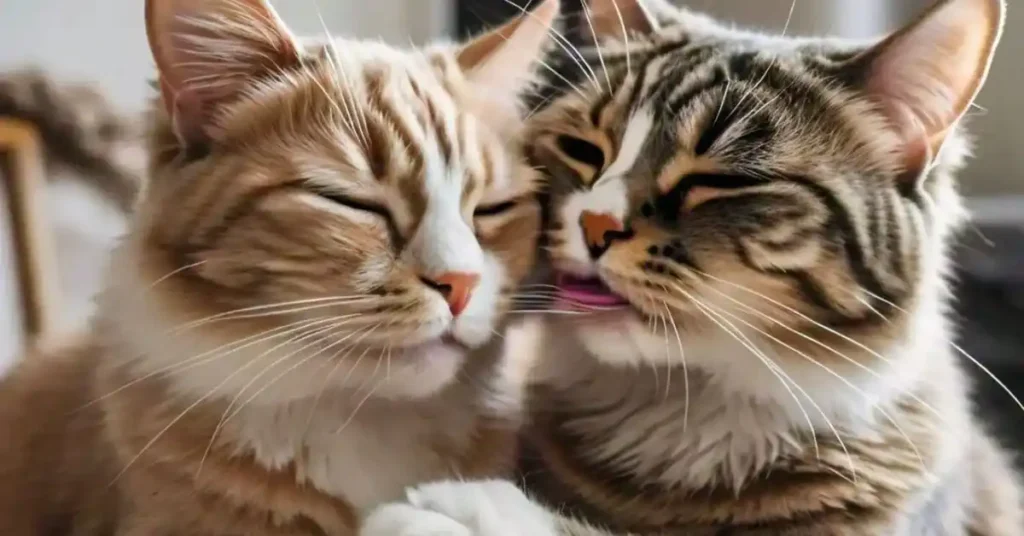
Gentle Giant Nature
Maine Coons are often referred to as “gentle giants,” and for good reason. Their large size is matched by an equally large heart. These cats are known for their friendly, easygoing nature. They are often described as the dogs of the cat world, thanks to their loyalty and affectionate demeanor. Understanding this is key because a Maine Coon’s temperament plays a significant role in how they respond to training. They are not typically aggressive and are usually open to new experiences, which makes them more receptive to learning.
Preparing for Training
Before you begin training your Maine Coon, it’s essential to set the stage for success. Proper preparation ensures that both you and your cat are ready to embark on the training journey, leading to more effective sessions and a stronger bond.
Create a Training-Friendly Environment
The first step in preparing for Maine Coon training is to create a distraction-free environment. Choose a quiet space in your home where your cat feels comfortable and safe. Remove any potential distractions, such as other pets, loud noises, or toys that might divert your cat’s attention. This helps your Maine Coon focus solely on the training tasks at hand, increasing the chances of success.
Gather the Necessary Supplies
- Having the right tools at your disposal is crucial for effective training. Some essential items include:
- Treats: High-value treats that your Maine Coon loves will serve as positive reinforcement.
- Leash and Harness: For leash training, choose a comfortable harness and leash that fits your cat securely.
- Toys: Interactive toys can be used to engage your cat during training sessions.
- Scratching Posts: To address behaviors like scratching furniture, have scratching posts readily available.
Choosing the Right Time for Training
Timing is everything when it comes to training your Maine Coon. The best time to train is when your cat is calm, alert, and not distracted by hunger or tiredness. Training sessions should be kept short, ideally between 5 to 10 minutes, to keep your cat engaged without overwhelming them. Early morning or late afternoon, when your cat is naturally more active, can be the best times for training.
Basic Training Commands
Teaching your Maine Coon to sit is one of the easiest commands to start with. Begin by holding a treat close to your cat’s nose, then slowly move it over their head. As their eyes follow the treat, their bottom should naturally lower to the ground.
Once they are in a sitting position, reward them with the treat and plenty of praise. Consistency is key, so repeat this process several times a day until your Maine Coon starts to sit on command.
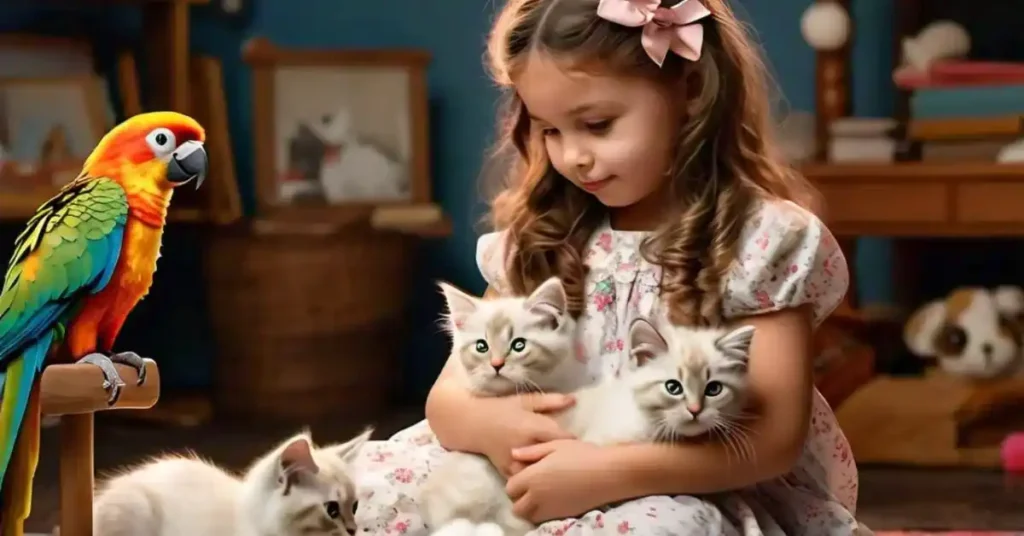
Training Your Maine Coon to Come When Called
Training your Maine Coon to come when called can be a lifesaver, literally. Start by choosing a simple, distinct word or phrase, like “come” or “here.” Use this word consistently, and always reward your cat when they respond correctly. Gradually increase the distance between you and your cat during training sessions to reinforce the behavior.
Clicker Training for Maine Coons
Clicker training is a popular method for teaching pets commands using a small device that makes a clicking sound. The principle is simple: click to mark a desirable behavior, then reward with a treat.
Over time, your Maine Coon will associate the click with positive outcomes and repeat the behavior. This method is effective for teaching more complex commands and tricks.
Training Your Maine Coon for Travel
Traveling with a cat might sound daunting, but with the right training, your Maine Coon can learn to enjoy the ride. Start by getting them accustomed to their carrier through short trips around the house.
Gradually extend the travel time making sure to reward your cat for staying calm. Bringing along familiar items, like a favorite blanket or toy, can also help reduce travel anxiety.
Monitoring Your Maine Coon’s Diet During Training
Diet is another important factor in training. While treats are an effective reward, it’s essential to balance them with regular meals to avoid overfeeding.
Opt for healthy treats, like small pieces of cooked chicken or commercial cat treats, and adjust your cat’s meal portions accordingly to maintain a healthy weight.
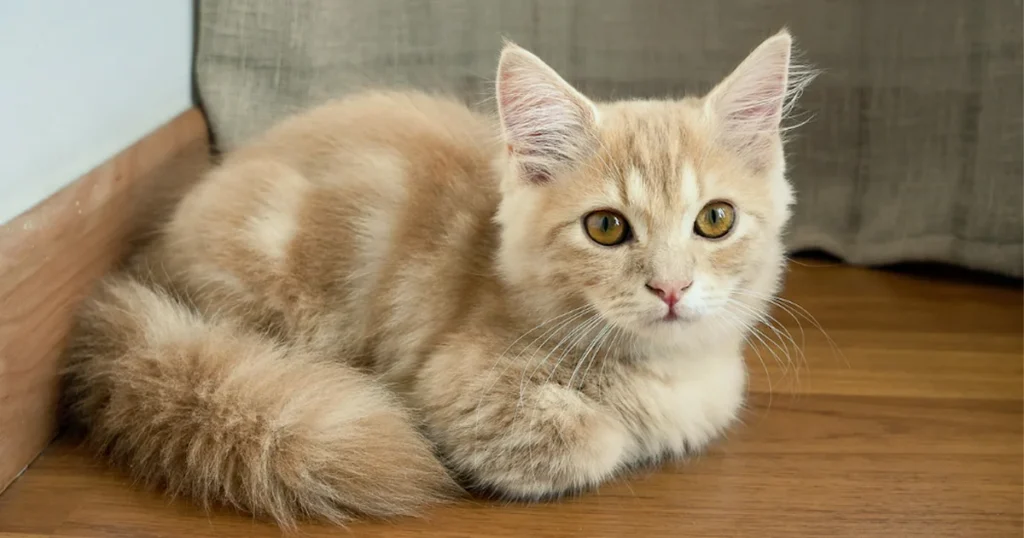
FAQs
Can Maine Coons be trained like dogs?
Yes, Maine Coons can be trained similarly to dogs due to their intelligence and social nature. They respond well to positive reinforcement and can learn commands, tricks, and even to walk on a leash.
What is the best age to start training a Maine Coon?
The best age to start training a Maine Coon is as early as possible, ideally when they are still kittens. However, adult Maine Coons can also be trained successfully with patience and consistency.
How long does it take to train a Maine Coon?
The training duration varies depending on the individual cat and the commands or behaviors being taught. Some Maine Coons may pick up basic commands in a few weeks, while more complex training might take several months.
Is clicker training effective for Maine Coons?
Yes, clicker training is highly effective for Maine Coons. It helps them quickly associate the click sound with positive behavior and rewards, making it easier to teach new commands.
How do I stop my Maine Coon from scratching furniture?
To stop your Maine Coon from scratching furniture, provide alternative scratching posts and train them to use these. Positive reinforcement, like treats and praise, can help redirect their scratching behavior to the appropriate items.
Conclusion
Training a Maine Coon is a rewarding journey that deepens your bond. Start with basic commands like “sit” and “come.” As you progress, introduce advanced tricks and manage behaviors. The secret is to understand your cat’s unique personality.
Patience and consistency are crucial. Use plenty of positive reinforcement, like treats and praise. With this approach, your Maine Coon can become a well-mannered and responsive companion. Enjoy the training process together!
